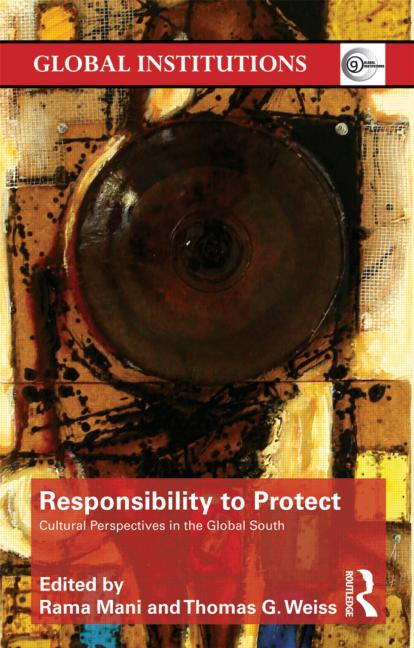
Jonathan Wright responds to Jonathan Maynard’s Questions on Mental Maps
This review of Mental Maps in the Era of Détente and the End of the Cold War 1968-1991 is as much sweeping as it is detailed. Jonathan Wright highlights the main arguments each contributor has made to this edited volume dedicated to the thinking that prevailed during the closing decades of the Cold War. How did world leaders think? How did their thinking change and how did this impact the course of the Cold War? On behalf of his co-editor Steven Casey, as well as of each contributing author, Jonathan Wright makes the case that, “The great crises of the twentieth century sometimes allowed leaders even with very different ideologies to find something in common, a shared orientation in their mental maps.”

Thirty Years of Presidential Rule in Cameroon
The 6th of November 2012 marks the 30th anniversary of Paul Biya’s presidency (1982 – 2012) in Cameroon. Celebrations, dinners and galas for the ruling RDPC party (Rassemblement Démocratique du Peupe Camerounais) are taking place in cities across the country, most predominantly in the central regions, i.e. those with geo-political links and a common socio-cultural heritage (more generally but problematically referred to as ‘ethnic’ ties) to the ruling party.[1] Towns like Mfou, Nanga-Eboko, Nyong, Kelle and Mbam celebrated their political fidelity to President Biya.
The U.S. Needs a Grand Strategy, Not Grandstanding
In the New Hampshire debate, Mitt Romney trumpeted his willingness to engage China in a trade war. Romney’s longstanding efforts to paint himself as someone willing to stand up to China exemplify an alarming trend of China-bashing in U.S. politics. Rick Santorum, among others, has echoed Romney, declaring, “I want to beat China.” Such statements are primarily targeted at shoring up political support and secondarily at painting President Obama as being soft on China. We should not take them as an accurate indication of future policy. And despite this overriding political calculus, these remarks are on to something – Beijing’s currency manipulation gives China a competitive advantage in global trade, and its abuse of intellectual property rights ought to be …

On ‘Responsibility to Protect: Cultural Perspectives in the Global South’
At the 2005 UN World Summit, more than 170 Heads of State and Government accepted three interlinked responsibilities, which together constitute the principle of ‘responsibility to protect’ (R2P). First, States accepted the responsibility to protect their own populations from genocide, war crimes, ethnic cleansing and crimes against humanity. Second, States promised to assist each other in fulfilling their domestic protection responsibilities. And third, the international community took on a collective responsibility to react, in a timely and decisive manner, if particular States are manifestly failing to protect their populations from the abovementioned mass atrocity crimes. Despite a quite remarkable normative development (see for example the frequent invocation of R2P in relation to the recent Libya crisis), this R2P principle is …
One small step for a Chinese, one big step for China. Is the space race really a sign of China’s new confidence?
When westerners think about China, the concept that springs more and more to mind is modernity. This seems surprising when one looks at the statistics – after all, the developing middle class, an indicator of a more urban and modernizing society, is still a minority (perhaps 300 million of China’s 1.3 billion population), albeit a fast-growing one, and China remains a very poor country in terms of per capita GDP, as well as substantially rural. Yet in other areas, it’s clear that China is placing itself at the forefront of our understanding of what it means to be a modern state. One iconic area in this regard is space technology: the Chinese Shenzhou programme of space exploration seems particularly daring …

The Myth of ‘Sixty Years of Oppression’
Reem Abou-El-Fadl has recently published an article in Al-Akhbar English newspaper entitled ‘From Nasser to Tantawi: The Myth of “Sixty Years of Oppression”‘. The article considers the connections that have been made in Egypt between the July 1952 Revolution, launched by the Free Officers movement, and the January 2011 Revolution, launched by this year’s popular uprising in Egypt. The article acknowledges that military officials first came into government after the July Revolution, but it goes on to explore the deceptive myth of ‘sixty years of oppression’ since, which has been heard often in recent months. ‘Yet today’s generals are protecting an entirely different set of interests from those important to the Free Officers. They have presided over months of delay …

Russia-Georgia Relations
There is a lot of talk around Russia-Georgia relations these days. One venue is the current “Geneva Process,” established in 2008 to attempt to sort out the mess created by the Georgian-Russian war. After seventeen meetings, there is no evidence of any significant progress. There is also a substantial array of informal processes involving all kinds of well-intentioned people from London, Washington, Georgia and Russia. They haven’t had any discernible impact either. Outsiders have a substantial interest in the normalization of the bilateral relationship. The situation between Georgia and Russia complicates the Western reset of relations with the Russian Federation. The unresolved conflict between the two obstructs Russia’s accession to the World Trade Organization. Although the situation on the ground …
Did Churchill Starve Bengal?
I first heard Madhusree Mukerjee talk about her research on British imperial policy and the Bengal famine of 1943 about three years ago when she was visiting Oxford to study the Cherwell Papers at Nuffield College. She talked about it over lunch with me at St Antony’s and it sounded like a most interesting line of enquiry. Her book Churchill’s Secret War: the British Empire and the Ravaging of India during World War II (Basic Books, New York 2010) appeared late last summer. A few pages into the book – and I knew this was a game-changer. I contacted my colleague Faisal Devji, who runs the South Asia History seminar. Faisal invited Mukerjee to speak and she gave her very …









